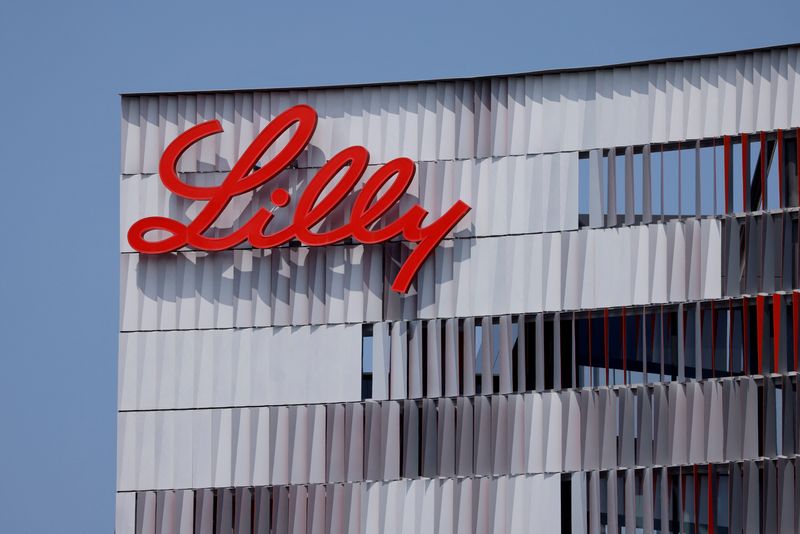By Leroy Leo
(Reuters) - Eli Lilly (NYSE:LLY) and Co deferred its timeline to complete application for accelerated approval of its experimental Alzheimer's drug, saying it expects such an approval to make little difference with Medicare's limited coverage terms.
Shares of Eli Lilly fell 2.6% to $244.21 on Thursday, after the drugmaker said it would complete the application sometime later in 2022, pushing away from first quarter, its initial timeline.
The U.S. Centers for Medicaid and Medicare Services has restricted coverage for Alzheimer's drugs, including Biogen (NASDAQ:BIIB)'s controversial treatment Aduhelm, only to patients taking part in approved clinical trials.
The agency's final coverage terms, due in April, are expected to apply to all drugs in the class, including Lilly's donanemab as well as those being developed by Roche Holding AG (OTC:RHHVF) and Eisai Co (OTC:ESALY) Ltd.
"We're trying to take investor focus off the exact timing of accelerated approval, given our very limited expectations for the impact of that accelerated approval commercially," said Lilly's Chief Scientific Officer Daniel Skovronsky.
Skovronsky said the company expects data from the confirmatory trial of donanemab by mid-2023, after which it may have more clarity on reimbursements under Medicare.
"I think people are now expecting that there will probably be no sales for donanemab this year, and essentially zero sales next year," Mizuho Securities analyst Vamil Diwan said.
Lilly said a U.S. Food and Drug Administration decision on using its arthritis drug, Olumiant, in hospitalized COVID-19 patients is expected by the middle of this year.

The drug is currently authorized in the United States for treating hospitalized COVID-19 patients and saw a 59% jump in sales in the fourth quarter.
Lilly beat estimates for fourth-quarter revenue and profit, buoyed by strong demand for its top-selling diabetes drug Trulicity as well as higher sales of its COVID-19 antibody therapies.